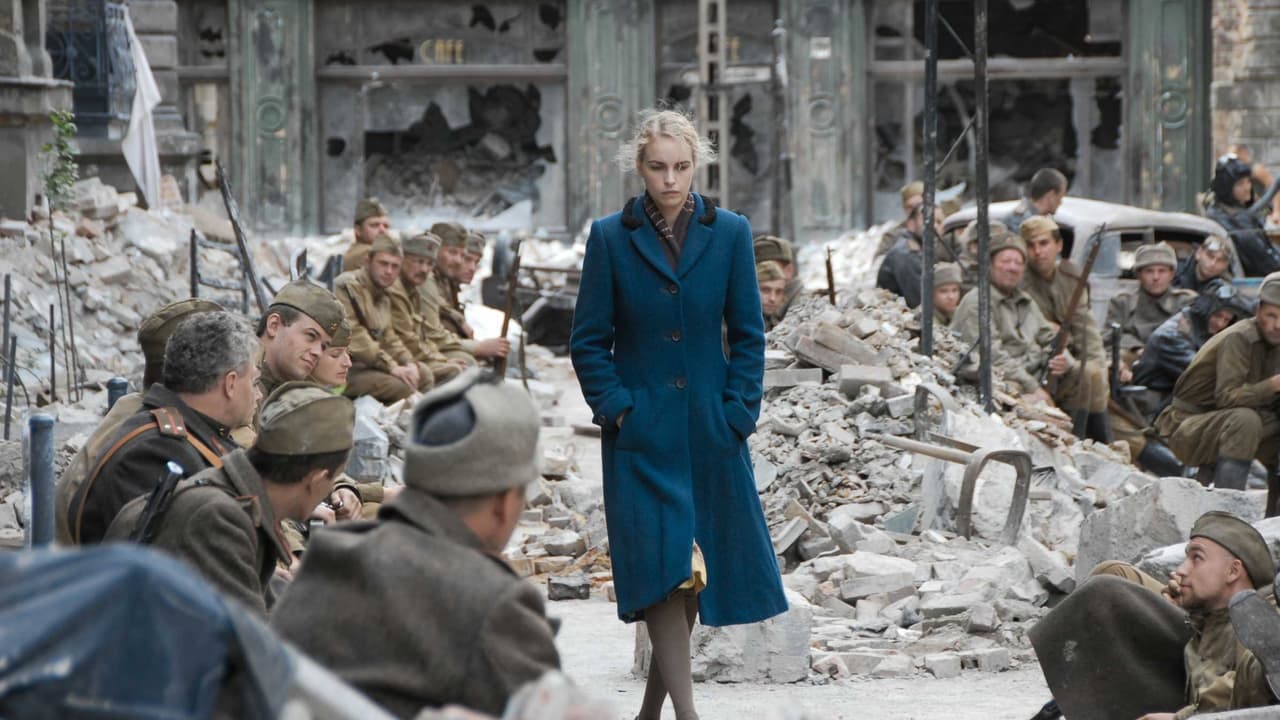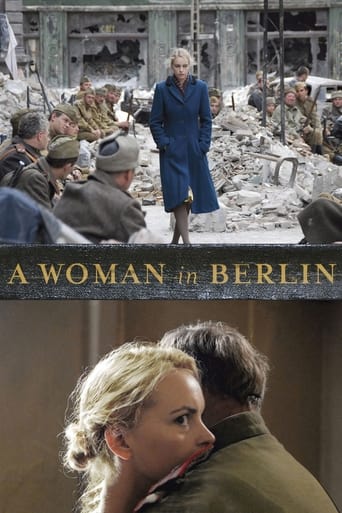

When a movie has you begging for it to end not even half way through it's pure crap. We've all seen this movie and this characters millions of times, nothing new in it. Don't waste your time.
... View MoreIt isn't all that great, actually. Really cheesy and very predicable of how certain scenes are gonna turn play out. However, I guess that's the charm of it all, because I would consider this one of my guilty pleasures.
... View MoreThis is one of the few movies I've ever seen where the whole audience broke into spontaneous, loud applause a third of the way in.
... View MoreThe plot isn't so bad, but the pace of storytelling is too slow which makes people bored. Certain moments are so obvious and unnecessary for the main plot. I would've fast-forwarded those moments if it was an online streaming. The ending looks like implying a sequel, not sure if this movie will get one
... View MoreMy rating is 5 out of 10. Why? Just because of the fact that it wasn't made properly. A lot of scenes that don't make any sense and are just useless from my perspective. The movie doesn't bring you the atmosphere of the situation this woman where put in. It just revolves into the fact that women where raped and it doesn't show besides that. Also, a lot of boring and long scenes to just fill up the time.
... View MoreGerman screenwriter and director Max Färberböck's third feature film which he co-wrote with actress and screenwriter Catharina Schuchmann, is based on an autobiographical book which was published anonymously in 1959 by an author who kept a diary whilst held captive by the communist national army of the Soviet Union called the Red Army. It premiered at the 33rd Toronto International Film Festival in 2008, was screened in the German Cinema section at the 59th Berlin International Film Festival in 2009, was shot on location in Germany and is a Germany-Poland co-production which was produced by German screenwriter and producer Günter Rohrback. It tells the story about a female journalist who lives in an apartment in Berlin in the mid-1940s with her husband named Gerd. During the Soviet occupation of Germany she is separated from Gerd and as numerous other German women systematically raped by Red Army soldiers, but due to her lingual skills she manages to seduce a Soviet major named Andreij Rybkin.Finely and engagingly directed by German filmmaker Max Färberböck, this finely paced and somewhat fictionalized tale which is narrated by the protagonist and mostly from her point of view, draws a moving portrayal of a German woman's involuntary relationships with various men and her ability to adapt and survive in times of war. While notable for it's naturalistic milieu depictions, fine production design by German production designer and art director Uli Hanisch and Polish production designer, art director and actor Andrzey Halinski and cinematography by Swiss cinematographer Benedickt Neuenfels, this character-driven and narrative-driven story about a woman's experiences during the end of the Second World War depicts an empathic study of character and contains a great score by Polish composer Zbigniew Preisner.This biographical, conversational, historical and at times romantic drama about war crimes in Germany where an unspecific number of German women from varied age groups were raped both in connection with combat operations and during the Soviet occupation of Germany by members of the Soviet armed forces and in the aftermath died from the molestation they were exposed to, is set in the capital of Germany during the Battle of Berlin in 1945 and is impelled and reinforced by it's cogent narrative structure, substantial character development, multiple perspectives, the distinct acting performance by German actress Nina Hoss and the fine acting performances by Russian actor Yevgeni Sidikhin. A heartrending, unsentimental, dramatic and authentic narrative feature from the late 2000s about human courage.
... View MoreWhile this isn't a terrible movie, it is a disappointment for those who read the book. It creates a completely different reality from that presented in the book. The author would be disgusted with the character they created from her diary. How disappointing, since the character in the book is so fascinating and complex. Ignore the historical revisionist reviews in these pages. Here's a summary of what to expect in this movie.As a movie: It's an interesting plot with characters that are only partially developed. What dominates is the setting--Berlin in Spring of 1945. The intrigue of the movie is the setting, the war, the meeting of the different peoples (Germans and Russians). It's worth watching for that.As history: It does present a story that needs to be told--the rape of the German women by the Russians. Rape is prevalent in war, all nations were guilty of rape on the part of their men, but what the Russians did to the German women is beyond compare. There are a lot of reasons for that, but you won't discover those in the movie. You'll need to read the book for that.As a movie based on a book: What a great disappointment. The richness of the book is the perspective given by this author, her insights into war and people, and her writing. Very nicely done. The movie, on the other hand, focuses only on the action. A very complex diary is distilled down to some very basic themes in the movie (war is bad, people do bad things in war, love crosses boundaries). Spoiler Alert: The keeper of this diary is portrayed as falling for her Russian friend. That is not the case in the book. She is simply trying to survive a situation the men of Germany and Russia placed her in. The true drama in the book revolves around the choices she must make to survive. Also, the movie character addresses her diary to her fiancée, Gerd. Not so in the book. She is her own person, and not the woman waiting for her man.Bottom line: read the book, but watch the movie if you can't read it--just keep in mind that this is not the real story.
... View MoreAdopted from an anonymous writers experience during the last major offensive in Europe, A Woman In Berlin recounts a daily record of one woman's indefinite life during this bloody battle and eventual Soviet occupation. In the interest of self-preservation her memoirs explain how she sort autonomous protection, food and succour from two occupying army officers. The story focuses on various woman, as well as children and de-listed men. Their lives traumatised through warfare, fear of occupying army, lack of food and water and absence of missing loved-ones. More notably, the fear of violation. The first quarter of the film efficaciously makes visible the terrifying situation the residents found themselves in. Also, where the film succeeds is in illustrating the fate of women in war through the horrendous acts shown, and not shown. However, it is the emotional desolation that the film does not fully grasp. Yet, films adopted from novels generally do. The relationship between the anonymous writer and the officers becomes something like an Hollywood romance towards the end. Although, the combination of fear, extreme aversion and romance in times of trauma are without the absence of existence, it would have been highly unlikely in these circumstances. In addition, the novel is not romantic, it is an act of survival. Therefore, the horror and self-delusion of the situation could have been conveyed more practically.Mainly, "A Woman In Berlin" solicits the audience to question the morality of woman who have no protectors. The film does not attempt to set apart good and evil. The Red Army is not impersonated as evil. The Germans are not presented as good. The soldiers do not conceal their intentions.The woman do not conceal their horrific ordeal. Although, for many years afterwards concealing their ordeal became a standard based prohibited subject in Germany. Moreover, any mention of the barbaric actions of the Red Army was meet with hostility in the Soviet Union. At the time of publication in the late 1950's, the book was proscribed as untrue and unacceptable by certain nations. More surprisingly, even today, coincided with the theatrical realise, "A Woman In Berlin" still is proscribed as fiction by certain people.It has to realised, as the film makes known, the army and population of the ruined city mixed and collaborated willingly as well as unwillingly. in areas which the Soviets had captured and before the fighting in the centre of the city had stopped, the Soviet authorities took measures to start restoring essential services. Although, at the same time, the film does not let the audience forget the soldiers casual violation of people and property without fear of inflicting any punishment. History estimates 2 million woman were brutalised during the Red Armies advance through Eastern Europe and Germany. When caught in the middle of a war, everybody has their own story to tell. I had read the book some years prior to viewing the film. I will state anybody wanting to view "Woman In Berlin" should do this first and then read the novel. This way, the novel enumerates like a testimony of your observations. I concluded that the rape of German women was not a unique feature of this battle, but a condition of the atrocity of war generally. This film can not tell every woman's shuddering experience during the battle of Berlin. Perhaps more controversially, the choices each made to survive. This film is from the diary of one woman's experience in a ruined Berlin.
... View More